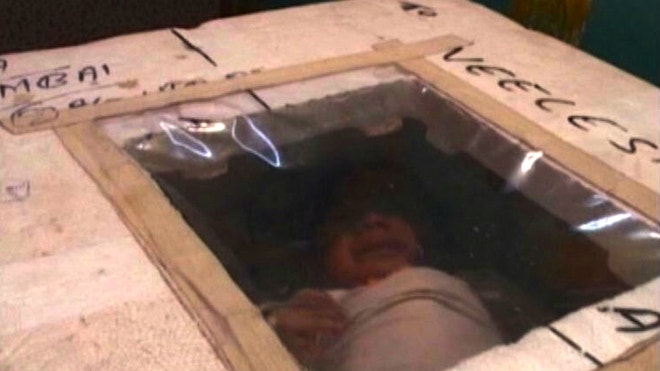
On the advice of a doctor, a premature baby boy’s life was saved after his parents incubated him inside a polystyrene icebox for five months
In October 2013, Mithilesh Chauhan was born two months premature at Alliance Hospital in Mumbai, India. At birth, he weighed just 3 pounds 3 ounces and was in need of constant monitoring as he was prone to infections.
However, Mithilesh’s parents, Aruna and Ramseh Chauhan, could not afford to keep their son in the hospital’s intensive care unit (ICU). They initially paid for their son’s hospital stay by borrowing money from relatives, but they soon ran out of people to ask for help. The new parents then tried reaching out to other government-run hospitals, but all the ICU waiting lists were too long.
Knowing the baby would have to be discharged soon, doctors at Alliance Hospital suggested a cheap – and unconventional – alternative.
“One doctor told us that if we couldn’t afford to keep our baby in hospital we should try a Thermocol icebox with holes for ventilation and a 60-watt bulb to provide the right amount of warmth,” Aruna Chauhan, 34, told Cover Asia Press. “He advised it was better than nothing and might save our baby. My husband bought the box from a nearby fish market and cut holes in it.”
After 20 days in the ICU, Mithilesh was released from the hospital – leaving the icebox as the Chauhan’s only option. Aruna and Ramseh said they would take him out every two hours to take his temperature.
“It was awful,” Aruna told Cover Asia Press. “We had no idea if it was the right thing to do, but we had to try something. We were terrified if we did nothing he’d die, but we were also aware that what we were doing wasn’t exactly safe either. It was a very distressing time.”
Mithilesh survived after spending five months in the icebox – but he remained severely underweight. He is now receiving 24-hour medical care at the Wadia Hospital for Children, who heard about his condition and offered to treat him for free.
Source: Fox news


